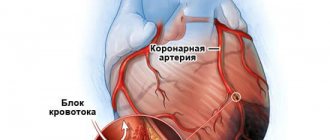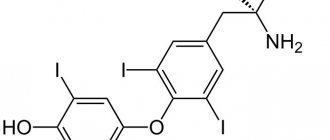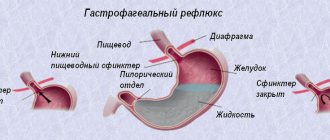Some people struggle with overeating, while others don't feel like eating at all. There is no simple answer to the question of why you lose your appetite. As a rule, this condition indicates the need for a serious examination. In order about the causes and diagnosis.
0
See all photos in the gallery
An indifferent attitude towards food is associated with disturbances in the functioning of the food center. In some cases, the desire to eat disappears partially and briefly. However, it may come to its complete absence. Then they talk about the onset of anorexia.
General information
It is necessary to distinguish between the concepts of hunger and appetite. Hunger is a reflex that occurs if the body does not receive food at a certain time . The mechanism of its development is as follows: the level of glucose in the blood decreases, after which a signal is sent to the hunger centers. At this moment, a person may feel increased salivation, a heightened sense of smell, and a tugging sensation in the pit of the stomach. This area is a projection of the stomach, therefore it always makes a person aware of the feeling of hunger.
Note! When hunger occurs, a person does not have the desire to eat only certain foods. He eats everything.
Appetite is a special manifestation of the feeling of hunger, in which individual favorite foods are selected. It is influenced by the time of day, emotional state, nationality of a person, religion, and finally.
Decreased appetite refers to a state when a person does not want anything . There is a concept of changes in appetite when habitual taste needs are disrupted. Doctors also diagnose a complete lack of appetite, leading to anorexia.
Hormonal imbalances
Fluctuations in hormonal levels greatly affect appetite. This is especially noticeable during pregnancy, when serious changes in a woman’s body can lead to very specific nutritional needs and changes in taste preferences.
Pathological abnormalities in the functioning of the endocrine glands usually cause a decrease in appetite. This process is characterized by gradualness: for example, with a decrease in the function of the thyroid gland (hypothyroidism), the desire to consume food decreases or disappears completely over a long period, in parallel with a general loss of body tone, the development of fatigue, the appearance of drowsiness, tearfulness and other signs of the disease.
Source: depositphotos.com
https://youtu.be/mxHmRDu_YWI
Causes of decreased appetite
A decrease in appetite is usually preceded by:
- Intoxication of the body due to inflammation or poisoning. Due to the fact that at such moments he spends all his energy on removing toxins, digestion of food fades into the background.
- Diseases of the gastrointestinal tract, which are accompanied by pain and discomfort.
- Malfunctions of the endocrine system organs due to diabetes mellitus, hormonal imbalance.
- Oncology (stomach, colon or blood cancer).
- Autoimmune diseases (scleroderma, rheumatoid arthritis).
- Depression, neuroses, neuropsychic disorders.
- Side effects after taking painkillers - morphine, ephedrine.
- Alzheimer's disease and other types of dementia.
- Pregnancy.
- Excess fatty foods in the diet.
- Metabolic disorders due to poor nutrition.
- Adaptation of the body during physical activity to which it is subjected for the first time.
- Low mobility and sedentary work.
- Individual lactose intolerance, celiac disease.
- Bad habits – smoking, alcohol, drugs.
Important! Quite harmless habits can also cause a dulling of appetite, namely: abuse of chocolate, coffee, and powerful energy drinks.
It should be noted that there are diseases in which a person also loses the desire to eat.
This is about:
- Bronze disease, or Addison's disease, is an endocrine disease associated with adrenal dysfunction.
- Still-Chauffer disease is juvenile rheumatoid arthritis.
- Typhoid fever.
- Dementia.
- Gastroesophageal reflux - when the contents of the stomach are thrown back into the esophagus.
- Stomach and duodenal ulcers.
- Schizoaffective disorder.
Description of fast weight loss
Rapid weight loss usually means a sharp decrease in body weight and visual emaciation of a person. At the same time, there are no external factors contributing to such a symptom: the patient does not engage in active sports, continues to eat well and leads a normal lifestyle. In this case, the patient’s state of health may be normal for some time, but after a certain period of time, he feels weakness, possibly intoxication, a high temperature and other symptoms of a disease appear.
Associated symptoms
There is an opinion that a good appetite is a sign of health. Due to the fact that during the day the feeling of hunger and appetite replace each other, a person saturates his body, while remaining at the same weight. This is a kind of balance that ensures normal functioning.
If this balance is disrupted for psychological or other reasons, appetite may disappear. Sometimes the feeling of hunger disappears along with it.
Note! Lack of desire to eat for several hours is not a reason for frustration. This happens when, during a previous meal, a person eats a dish that is too high in calories. In other words, at such moments the body is provided with energy for a longer period of time.
The absence of hunger for 5 - 8 hours makes you think. By the time they expire, the level of glucose in the blood will probably decrease, and the person will feel a loss of strength and weakness. After satiation, the stomach full of food will stretch, the glucose concentration will increase and a signal will be sent to the brain to stop saturation.
It is interesting that scientists have established: a person subconsciously chooses those products that his body needs at a given time. Athletes prefer to eat salty foods after training to replenish salt loss due to sweat.
I don’t feel like eating at all during pregnancy: what to do?
0
While expecting a baby, many women experience a lack of appetite. As a rule, other symptoms appear along with this symptom. Nausea, dizziness, vomiting prevent life. Most often these signs appear in the first trimester. They are moderately expressed and pass quickly. However, it also happens differently. Frequent vomiting, which prevents you from eating, is a serious complication. It requires urgent hospitalization. The fact is that disturbances in electrolyte and water-salt balance, weight loss of more than 5% of total body weight due to dehydration can lead to acute renal failure, pulmonary embolism, and blood clotting disorders.
https://youtu.be/0pR7VEICLt4
Diagnostics
If your appetite decreases, you should consult a doctor. He will prescribe a full examination of the body, including:
clinical blood test, analysis of sugar levels, hormones to exclude diabetes mellitus, hormonal imbalance, liver disease;
- urine test to rule out kidney inflammation;
- chest x-ray to detect pneumonia, lung cancer;
- HIV test;
- Ultrasound of the gastrointestinal tract;
- pregnancy test.
Possible diseases
A sharp decrease in body weight, as mentioned above, can be caused by a huge range of diseases and negative conditions. Here are just a few of them:
- Problem with the adrenal glands. Typically, adrenal insufficiency is accompanied by anorexia, weakness, sudden weight loss, disturbances in regular bowel movements, and mental irritability. Sometimes the patient is plagued by attacks of nausea, as well as focal manifestations of strong skin pigmentation.
- Diabetes. There is a common belief that diabetes only causes obesity - this is not true at all! This disease causes metabolic processes to malfunction and provokes not only weight gain, but also sudden weight loss, depending on the specific condition of the body. In addition to weight loss, diabetes mellitus is accompanied by fatigue, extreme thirst, and frequent urination.
- Neurological anorexia. This disease of a neurological nature is typical for women from 18 to 30 years old and is accompanied by a very sharp loss of weight (up to 50 percent) over a short period of time. Patients with this diagnosis experience muscle atrophy, hair loss, general weakness, hypotension, frequent constipation, and regular uncontrolled vomiting.
- Systemic depression. Severe forms of systemic depression are sometimes accompanied by drowsiness, suicidal thoughts, loss of appetite and weight, and general fatigue.
- Cryptosporidosis. Protozoal infections of this type provoke muscle pain, sudden weight loss, severe diarrhea, abdominal cramps, nausea and vomiting.
- Viral infections with herpes. Herpes, despite the classic sluggish form of the disease, sometimes contributes to malnutrition due to unpleasant sensations while eating, which in turn provokes weight loss.
- Gastroenteritis. Gastroenteritis quite strongly affects the absorption of fluids into the body, slowing them down, which in turn leads to serious weight loss, dehydration, fever, dryness of all mucous systems of the body, tachycardia and other manifestations of the disease.
- Esophagitis. Inflammation in the esophagus area causes severe pain during food consumption - a person can de facto avoid this activity or reduce it to a minimum. Such swallowing dysfunctions provoke severe and sudden weight loss, and the patient often experiences regular vomiting.
- Leukemia. Such a terrible disease as blood cancer causes rapidly progressive loss of body weight, tachycardia, general weakness of the body, pain in the muscles and bones, anemia, wide-spectrum fevers, enlarged spleen, etc.
- Various oncologies. Almost every cancer can be a catalyst for the process of rapid weight loss, which varies in symptoms depending on the location and type of disease
- Stomatitis. Various inflammations of the oral mucosa interfere with proper nutrition and thus provoke weight loss.
- Pulmonary tuberculosis. A serious infectious disease can cause, in addition to sweating, weakness, chest pain, hemoptysis, shortness of breath and low-grade fever, weight loss with anorexia.
- Lymphomas. In acute lymphomas, dynamic, smooth weight loss is usually observed, occurring against the background of enlarged lymph nodes, spleen, liver and skin itching.
- Thyrotoxicosis. This disease provokes a significant increase in the level of hormones in the thyroid gland, which “accelerate” metabolic processes, causing severe diarrhea, sweating, fever, sudden weight loss, and tremors of the limbs.
- FFT syndrome. In newborns and small children, nutritional underdevelopment is rarely but periodically diagnosed, as a result of which the baby extremely quickly loses weight and strength.
- Whipple syndrome. This condition is characterized by significant damage to the intestinal epithelium and an almost complete stop in the absorption of fluid and nutrients through the gastrointestinal tract, which in turn provokes a sharp loss of body weight, diarrhea, steatorrhea and various anorexic manifestations.
- Ulcerative colitis. Ulcerative colitis causes a decrease in appetite, physical exhaustion of the body and weight loss and an increase in body temperature.
- Crohn's disease. As the disease progresses, patients experience weakness, fatigue, constant diarrhea, abdominal cramps and rapid weight loss even with adequate nutrition.
- Medicines. Some medications for the treatment of the thyroid gland, brain stimulants, laxatives, and chemotherapy are a catalyst for extremely rapid weight loss with general depletion of the body.
- Physiological reasons. Physiological causes of weight loss include aging (and, accordingly, a decrease in muscle mass), psychiatric disorders, alcoholism, tooth loss (difficulty chewing food), etc.
What to do if you lose your appetite
If diseases that could cause loss of appetite are identified, therapy is prescribed to eliminate them. At the same time, doctors recommend adjusting the schedule and portions of food intake. In other words, they advise eating 5 to 6 small meals a day. The last meal should be 4 hours before bedtime. You should spend about 30 minutes per meal, chewing the pieces slowly.
Snacks should be avoided. Sweets should be replaced with fruits, sauces and marinades with spices, as they stimulate the appetite. For some patients, doctors prescribe vitamin B and zinc, which enhance the sense of smell. It is also important to maintain a drinking regime, especially when playing sports.
Note! Nausea during this period is relieved with Promethazine and other similar drugs. To improve the functioning of the thyroid gland, hormone substitutes are prescribed. Dementia is treated with high-calorie nutritional mixtures, inflammation with antibiotics.
How to improve your appetite
Help to return to your previous state:
easily digestible dishes - porridge, fish, vegetables, lean meat;
- beautiful serving and appetizing presentation of dishes;
- a varied diet with the optimal amount of proteins and carbohydrates;
- healthy sleep and physical activity;
- love for pickled canned foods that stimulate the production of gastric juice;
- foods with vitamin C that improve appetite;
- special infusions and decoctions of bitter herbs that have the same properties.
Traditional medicine to improve appetite
Traditional healers offer several recipes for remedies to improve appetite, including:
- Camomile tea. To prepare it, 1 tbsp. l. raw materials are poured with boiling water, left for half an hour, and then taken as tea. This infusion also improves mood and relieves stress.
- Yarrow juice. To improve its taste, mix it with honey and drink a teaspoon before meals. The product is suitable for the prevention and treatment of ailments of the gastrointestinal tract, getting rid of weakness.
- Infusion of wormwood. 1 tsp. raw materials are poured with 200 ml of boiling water and left for half an hour. Take 1 tbsp. l. before meals.
- Dandelion root infusion. To cook it, 2 tsp. raw materials are poured with 200 ml of boiling water and left for 8 hours. Drink 50 ml 2-3 times a day to improve appetite and boost immunity.
The prognosis depends on the reasons that provoked the loss of appetite. If the disease is successfully treated, appetite returns if all recommendations are followed. The main thing is to identify it in a timely manner. And for this you need to monitor your health and undergo regular preventive examinations.
Chumachenko Olga, medical observer
20, total, today
( 67 votes, average: 4.12 out of 5)
Stitches in the right side under the rib: reasons, what to do at home
Varicose veins of the esophagus: symptoms, treatment
Related Posts
Summary
People may experience loss of appetite for a variety of reasons. Some are short-term, including colds, food poisoning, other infections, or medication side effects. Others are associated with chronic illnesses such as diabetes, cancer or life-limiting illnesses.
Loss of appetite is often accompanied by a feeling of fatigue or nausea. If a person is worried about loss of appetite, they should tell their doctor, mentioning all other symptoms as well.
Treatment for loss of appetite will depend on the cause. People may benefit from eating small, regular meals instead of three large ones, and liquid meals often taste better.
Loss of appetite in children
This condition is very common in young children when they are teething. The child becomes capricious, cries often, the temperature may rise and problems with bowel movements may occur.
Appetite problems can be caused by a viral infection. For example, it could be stomatitis. Its cause is the herpes virus.
In adults, it manifests itself as a cold in certain places. Ulcers appear in the mouth, causing pain.
Children often lose their appetite even for the foods they used to love. This is due to the fact that the body is constantly growing and it needs a varied diet. You should not force your child to eat something he does not want.
Weight loss under stress
Stressful situations, depression, as well as various neurological conditions can provoke both obesity and significant sudden weight loss. In some cases, these conditions provoke the development of anorexia, especially if they are caused deliberately in an attempt to reduce weight by provoking vomiting after meals.
The problem can only be eliminated by qualified help from specialists who will prescribe appropriate medication, physiological procedures and recommend psychological help.
Carefully and carefully monitor your own health, prevent the development of diseases and always be happy!
https://youtu.be/6heEug0krq4
An elderly person refuses to eat: what to do?
To prescribe competent treatment for a patient suffering from eating disorders, a doctor’s opinion is necessary. During the examination, the therapist prescribes tests and determines the primary cause of loss of appetite. Depending on the diagnosis, treatment is carried out in one of the following areas:
- Gastrointestinal diseases: gastritis, ulcers, pancreatitis, intestinal obstruction and others. The gastroenterologist creates a diet and determines the need for surgical intervention;
- oncology. It is treated according to the standard regimen: chemotherapy, radiation therapy, surgical removal;
- In case of diabetes mellitus, the examination is carried out by an endocrinologist. A diet and medication treatment plan is drawn up;
- psychological disorders and their origin are studied by a psychotherapist or psychiatrist.
Refusal to eat can be caused by several factors at once, in which case the patient will need comprehensive care. Treatment is carried out in two directions: eliminating the underlying disease and fighting to restore appetite. Only by finding out why older people refuse to eat can therapeutic measures be taken.
Weight loss and fever
Rapid and sudden weight loss, as well as the high temperature that accompanies this process, usually indicates the presence in the body of diseases such as ulcerative colitis, gastroenteritis or pulmonary tuberculosis. Quite often, these symptoms indicate extreme exhaustion of the entire body or a chronic lack of fluid that nourishes all body systems.
Smooth dynamic weight loss with increasing amplitude, as well as constant low-grade fever, increasing in the evenings, may indicate the development of oncology and cancerous tumors.
Herbal medicine and vitamins for children
The answer to the question of how to increase a child’s appetite is quite simple (if no serious illnesses are detected).
First of all, you need to choose a good vitamin complex. This will help balance the amount of essential microelements and restore lost appetite. You can also drink teas based on medicinal herbs. Plants such as Veronica officinalis, spring gentian, and string stimulate the desire to eat. But all these measures should be accompanied by specialist advice and selected individually.
Infectious diseases
Very often, in the absence of appetite, a patient may notice symptoms such as weakness, general malaise, nausea, bad mood, headaches, and problems with performance.
Such symptoms indicate the presence of general toxicity, the cause of which is hidden in a chronic infection. In most cases, it is found in the urinary system and gastrointestinal tract.
During infectious infection, the period of the acute phase alternates with a period of remission.
With an exacerbation, additional symptoms appear such as pain, diarrhea, problems with urination, as well as a sharp increase in temperature.
In order to defeat this disease, it is necessary to first eliminate the infection.
Since these types of infections occur along with very strong toxicity, in most cases the patient complains of a problem such as loss of appetite.
When to see a doctor
Take care of your health - save the VKontakte link
Only 3 percent note that symptoms such as nausea, loss of appetite and weakness appear constantly.
Most patients listen to any advice from friends and strangers, neighbors, just to forget about malfunctions in the body.
There are a number of reasons why you should contact your doctor for help.
- Body temperature rises sharply. It cannot be eliminated with medications.
- Nausea does not go away throughout the week and gets worse after waking up.
- Additionally, painful sensations occur after waking up and end with vomiting.
- Bloody discharge appears.
If such symptoms appear, you should immediately consult a doctor. There is no need to eliminate such symptoms at home.
Forms of eating disorders
- Somatogenic form - appears as a result of diseases of organs or systems.
- Endogenous form - occurs as a result of metabolic disorders in the brain.
- Neurotic form - appears due to reversible neuroses, mental disorders that patients are aware of.
- Neuropathic form - as a consequence of neuropathies (increased excitability, exhaustion).
Appetite disturbances may occur with brain lesions
- The psychopathic form is a mental illness that appears as a result of disruption of the brain (brain); it is a disorder of human behavior and personality.
- Mixed - when several forms of eating disorders are combined together, therefore, treatment must be comprehensive.
Medicines to increase appetite
Medicines that increase appetite should be used only in extreme cases after consultation with a doctor. Each of them has a number of contraindications and side effects, and if used incorrectly and in dosage, they can cause serious harm to the body.
| Drug name | Features of the impact |
For neuroses and psycho-emotional disorders associated with loss of appetite, patients are recommended to take antidepressants and sedatives in combination with psychotherapy and other treatment methods. The most common drugs include Amitriptyline, Fluoxetine, Cipramil, Paxil, but their prescription and dosage calculation must be made by a doctor.
Video – “Elkar”
https://youtu.be/TJBZ8gwG9yo
Treatment
Due to the fact that nausea is a signal of certain diseases, treatment should be aimed at restoring the body. It is important not to do treatment at home, but to consult a specialist.
If nausea appears for some other reasons that are not related to diseases, then it is necessary to eliminate the causes. For example, these could be unpleasant odors or unhealthy foods.
If there is pregnancy, the woman should be given rest. You can eliminate the symptoms with a drug such as Meclozine. Vomiting in the first stages is quite common, and you need to take safe medications.
What herbs can
If you study how to increase appetite in an elderly person using folk remedies, you can identify a large number of remedies that can alleviate the condition. For example, many people use seasonings. The best effect is exerted by bay leaf, horseradish, basil and dill. These spices are recommended to be added to food. In some cases, you can give them immediately before meals.
Such herbs can break down fats and improve the digestion process. You can also make tea from star anise for an elderly person. Additionally, it is recommended to prepare infusions of dandelion, wormwood, and centaury roots.











